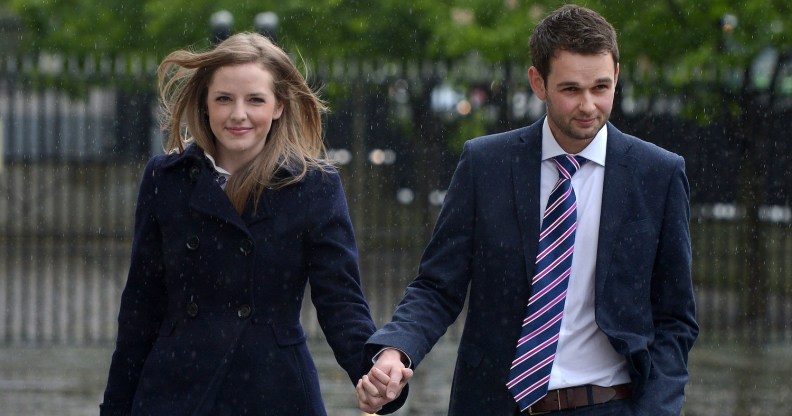Christian bakers to appeal ‘gay cake’ case to Supreme Court

Bakery owners who claimed it would be ‘sinful’ to make a gay cake are to press ahead with an appeal to the Supreme Court, after losing their legal battle.
The owners of Ashers Bakery in Belfast were found guilty of unlawful discrimination based on sexual orientation and political or religious grounds, after the company in Newtownabbey, Northern Ireland refused to bake a cake showing the message ‘Support Gay Marriage’ above an image of Sesame Street’s Bert and Ernie.

The owners have repeatedly gone to court to challenge the Equality and Human Rights Commission,with financial and legal help from the anti-LGBT Christian Institute.
The Court of Appeal had dismissed the appeal from Daniel and Amy McArthur, who claimed in their appeal that God considers it a sin to make cakes with pro-gay messages on.
After being denied leave to appeal by senior judges in Belfast this week, the McArthur family’s are expected to petition the Supreme Court directly.
The pair’s challenge had insisted that the alleged discrimination was against the message on the cake, and not the person buying it.
Last month, Northern Ireland’s Lord Chief Justice Sir Declan Morgan ruled: “The fact that a baker provides a cake for a particular team or portrays witches on a Halloween cake does not indicate any support for either.”
The judgement continues: “Counsel for the appellants [claimed] that a protected characteristic could not be established by a difference in treatment in respect of a message on a cake.
“We do not accept this. The benefit from the message or slogan on the cake could only accrue to gay or bisexual people.
“The appellants would not have objected to a cake carrying the message ‘Support Heterosexual Marriage’ or indeed ‘Support Marriage’.
“We accept that it was the use of the word “Gay” in the context of the message which prevented the order from being fulfilled. The reason that the order was cancelled was that the appellants would not provide a cake with a message supporting a right to marry for those of a particular sexual orientation.
“This was a case of association with the gay and bisexual community and the protected personal characteristic was the sexual orientation of that community. Accordingly this was direct discrimination.”

